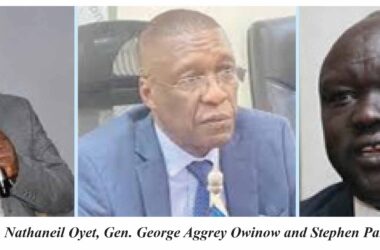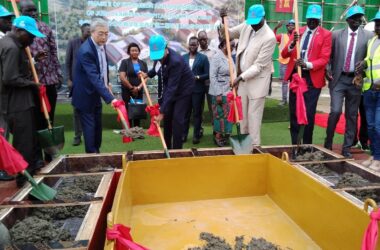By Yiep Joseph
As the Tumaini Initiative gains fresh momentum following a meeting between Kenyan President William Ruto and South Sudanese President Salva Kiir, stakeholders are being urged to prioritize national interests over individual and party agendas.
In an interview, Dr. Gai Chol, Chairman of the Coalition of Opposition Parties (COOP), expressed concern that the initiative’s progress has been hindered by the government and holdout groups prioritizing their own interests.
Dr. Chol appealed to all parties involved to put aside their differences and work towards a lasting peace and economic improvements.
“My message to the parties involved in the negotiation of the Tumaini is that they should place the interest of the country above their partisan and personal interests and discuss to agree on things that will improve the current political and economic crisis in South Sudan,” Ghai said.
He blamed the government in Juba for the delay of the initiative, citing that some of them claimed it was reducing their current powers.
Dr. Ghai appealed to the government to accept the negotiation and try as much as possible never to take the talks back to square one.
“Now, RTGoNU members want to renegotiate the protocols that were signed a few months ago. I don’t think the Holdout group will agree to go back to the drawing board and renegotiate what they signed,” he said.
“The RTGoNU wants the Tumaini Initiative to be added as an appendix to the RARCSS, which the Holdout group rejected in 2018. The RTGoNU opposes the Tumaini Initiative, citing provisions such as the establishment of the National Leadership Council (NCL) that contradict the RARCSS,” he added.
He expressed doubt on the immediate progress of the Nairobi talks unless the parties to the talks abandoned their interest and focused on the interest of the country.
“The public should know that the prospect of the Tumaini Initiative translating into concrete peace is minimal given the current political stance,” he said.
On his part, Dengbil William Aguer, Interim Leader of the Youth-led African Peoples Congress (APC), called on the leadership to view the initiative as for peace, not job creation.
“Peace agreements have been used as tools to enter into the government and competition over the public resources; this is a sad reality among our politicians,” he said.
“The Tumaini has been turned into job creation, and already we have a large government in Juba that cannot pay itself. I was thinking that it was an avenue to raise concern and bring inclusive peace,” he said.
He called on the government and the holdout groups to focus on peace rather than fighting over the seats.
However, on Wednesday, President Salva Kiir Mayardit and Kenya’s President, Dr. William Samoei Ruto, in their meeting in Juba, directed the mediation teams to reconvene and resolve any outstanding issues within two weeks before the final signature.
Also on the same day, South Sudan’s President Salva Kiir Mayardit issued a decree relieving his presidential special envoy and ambassador, Albino Mathom Ayuel.
Mr. Mathom was the head of the government’s negotiating team with the opposition groups in the Tumaini peace initiative.




